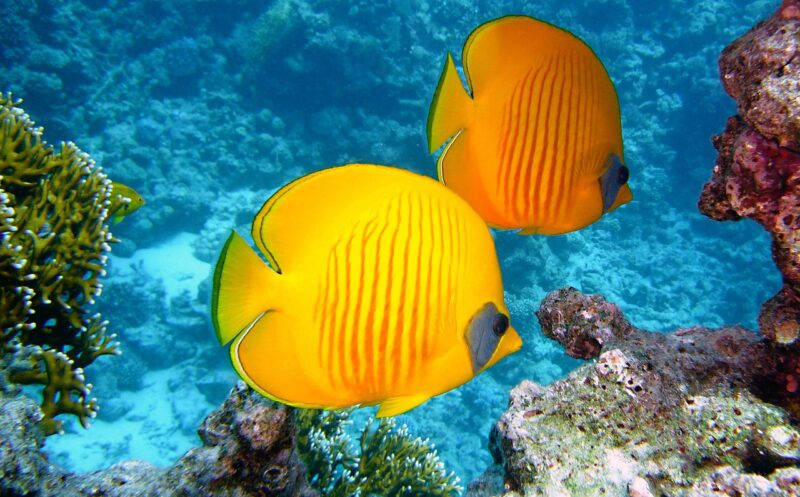How Coral Reefs Support Marine Life and Why They Desperately Need Saving
November 16, 2024

Coral reefs cover less than one percent of the Earth’s surface, yet they are essential to supporting marine life and maintaining the health of our oceans. Often referred to as the “rainforests of the sea,” these vibrant ecosystems consist of vast colonies of tiny coral polyps, providing habitat and shelter for an incredible diversity of marine organisms. Sadly, coral reefs are under threat from numerous factors, including climate change, pollution, and overfishing, leading to the urgent need for their conservation.
1. The Importance of Coral Reefs
Coral reefs are more than just beautiful underwater landscapes; they are critical to maintaining ecological balance and supporting marine biodiversity. Here are several key reasons why coral reefs are vital:
- Biodiversity Hotspots: Coral reefs provide habitat for over 25% of all known marine species, including fish, mollusks, and crustaceans. This extraordinary biodiversity plays a crucial role in maintaining the health of ocean ecosystems.
- Food Source: Many coastal communities around the world rely on reef ecosystems for food. Fish and invertebrates that inhabit coral reefs are essential sources of protein for millions of people, especially in developing countries.
- Coastal Protection: Coral reefs act as natural barriers against storm surges and reduce the impact of waves on coastlines. This protective function is vital for preserving coastal habitats and protecting human settlements from natural disasters.
- Economic Value: Coral reefs contribute billions of dollars to global economies through tourism, fisheries, and biotechnology. They attract millions of tourists each year, driving local economies and providing jobs.
Preserving coral reefs is not just an environmental concern; it is also a crucial socio-economic issue that affects livelihoods and food security.
2. How Coral Reefs Support Marine Life
The intricate structures formed by coral polyps create a complex habitat that supports an impressive array of marine life. Here are key ways in which coral reefs assist marine organisms:
- Shelter: Coral reefs provide refuge for numerous species from predators and harsh environmental conditions. Some fish species, such as clownfish, have a symbiotic relationship with anemones and rely on coral reefs for shelter and breeding areas.
- Breeding and Nursery Grounds: Many marine species use coral reef ecosystems as spawning and nursery grounds. The structure of the reefs offers safe environments for juvenile fish to grow and develop before venturing into open waters.
- Feeding Opportunities: Coral reefs provide abundant food sources, including algae, zooplankton, and other small organisms. The dynamic interplay between coral polyps and the surrounding marine life sustains diverse food webs.
- Symbiotic Relationships: Coral reefs are marked by symbiotic relationships, such as those between coral and zooxanthellae, a type of algae. These algae live within coral tissues and provide the coral with food through photosynthesis, while the coral provides the algae with protection and nutrients.
The loss of coral reefs would mean not only the disappearance of vibrant marine life but also the collapse of intricate ecological webs that sustain countless species.
3. Threats Facing Coral Reefs
Despite their critical importance, coral reefs are facing severe threats that have led to alarming declines in their health and coverage around the globe. Key threats include:
- Climate Change: Rising sea temperatures due to climate change lead to coral bleaching. When stressed by heat, corals expel the algae living in their tissues, causing the corals to turn white and, if prolonged, can lead to their death.
- Pollution: Coral reefs are sensitive to changes in water quality. Nutrient runoff, plastic waste, and chemicals can lead to algal blooms that suffocate corals and diminish their ability to thrive.
- Overfishing: Unsustainable fishing practices disrupt the balance of reef ecosystems, leading to declines in key fish populations that maintain the health of the reefs.
- Coastal Development: Coastal construction and urbanization can lead to habitat destruction and increase sedimentation, which smothers coral reefs and blocks sunlight necessary for photosynthesis.
The cumulative effect of these threats has resulted in the loss of over 50% of the world’s coral reefs in the past 30 years, painting a dire picture for these ecosystems.
4. The Urgent Need for Conservation
Given the numerous challenges facing coral reefs, it is essential to take action for their conservation. Here are effective strategies to protect these precious ecosystems:
- Protect Marine Areas: Establishing marine protected areas (MPAs) can offer safe havens for coral reefs, allowing ecosystems to recover and thrive without human interference.
- Sustainable Fishing Practices: Promoting sustainable fishing methods can help reduce overexploitation of marine species and restore fish populations essential for reef health.
- Reduce Pollution: Proper waste management and pollution control measures can mitigate the negative impacts of runoff that harms coral reefs.
- Support Science and Research: Encouraging scientific research on coral health can lead to better understanding and management strategies to fight coral loss and promote resilience.
Ultimately, raising awareness about the importance of coral reefs is vital to garnering support for their protection. Community engagement and global cooperation are essential to implementing successful conservation efforts.
5. Conclusion: A Call to Action
Coral reefs are invaluable ecosystems that support marine life and contribute significantly to the health of our oceans and human communities. As stewards of the Earth, we must recognize the urgent need to protect coral reefs from the myriad threats they face. Every action counts, whether it’s advocating for sustainable practices, supporting conservation organizations, or simply spreading awareness about the importance of these ecosystems.
Together, we can make a difference and ensure that coral reefs continue to thrive for generations to come. The time to act is now; the fate of our oceans, the biodiversity they support, and the livelihoods they sustain depend on our commitment to preserving coral reefs.






